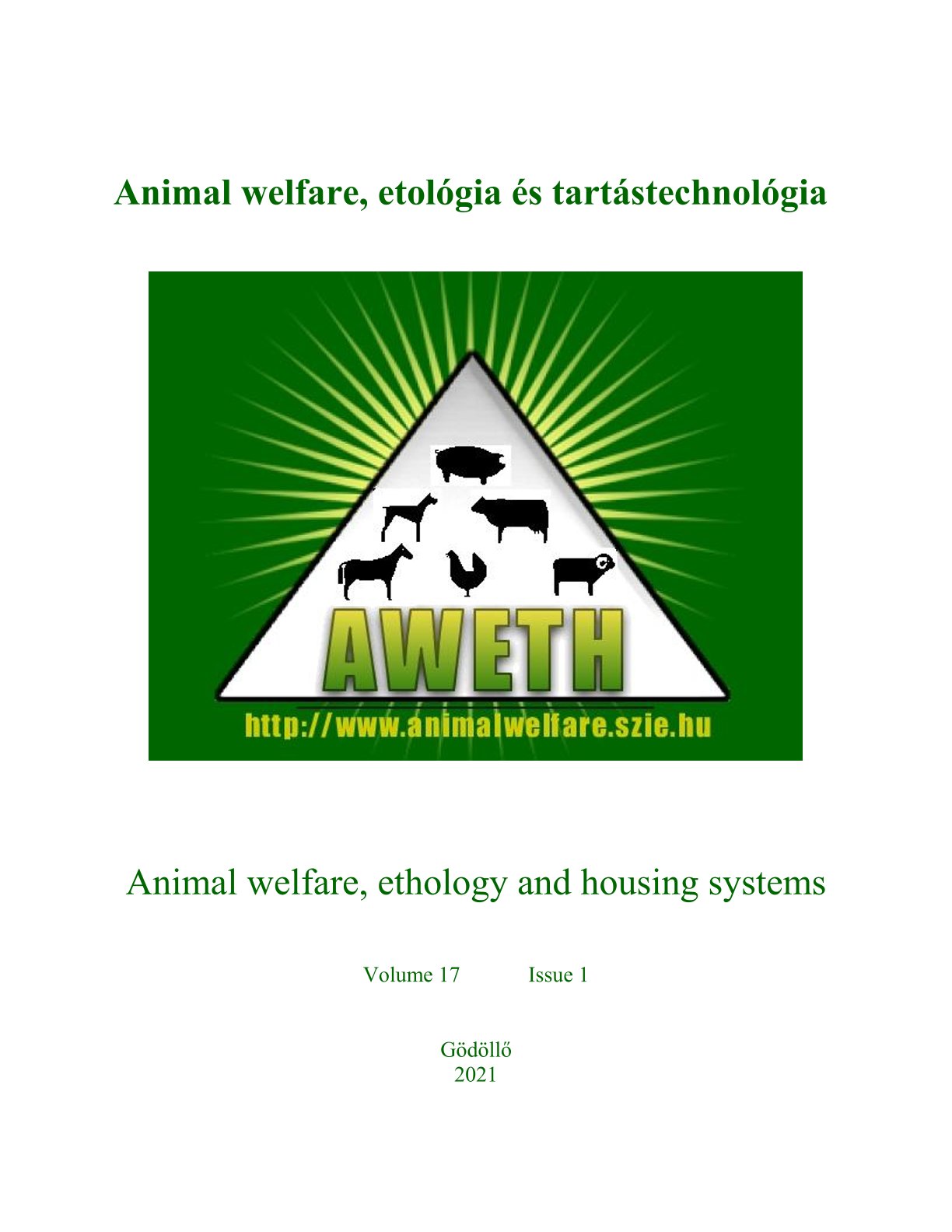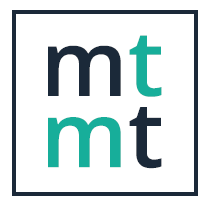Különböző szelekciós indexek összehasonlítása a tejtermelésben és a tőgyegészségügyi tulajdonságokban holstein-fríz tehenekben Egyiptomban
DOI:
https://doi.org/10.17205/SZIE.AWETH.2021.1.042Kulcsszavak:
Holstein-fríz tehén, fenotípusos és genetikai paraméterek, szelekciós indexek, EgyiptomAbsztrakt
A szerzők 937 holstein-fríz tehén tejtermelési adatait dolgozzák fel 2012 és 2017 között Egyiptomban (Sakha telep, a Mezőgazdasági Minisztérium Állattenyésztési Kutatóintézete, Dokki, Kairó). A fenotípusos és genetikai jellemzőket az alábbiakra számították: 305 napra korrigált tejmennyiség, tejtermelés hossza, tej zsírszázaléka, a tej szomatikus sejtszámértéke. Az elemzéseket Boldman és mtsai. (1995) módszerével (MTDFREML) végezték. Az alábbi átlagértékeket kapták: 3558 kg tej, 301 tejtermelési nap, 3,7 tejzsírszázalék és 536 x 10-3 szomatikus sejtszám érték. Az összes vizsgált tulajdonság esetében igazolták a hónap, a évjárat és az ellés számának hatását. A becsült örökölhetőségi értékeket is számítottak ebben a tanulmányban: 305 napra korrigált tejmennyiség (0,61±0,14), tejtermelés hossza (0,16±0,07), tej zsírszázaléka (0,40±0,07) és a tej szomatikus sejtszámértéke (0,03±0,07). Tizenegy szelekciós indexet próbáltak ki, a legjobb a négy tulajdonságra épülő volt (RIH= 0,97). Ezt javasolják a tejtermelési jellemzők javítására és a szomatikus sejtszám csökkentésére.
Hivatkozások
Abosaq, F. M., Zahranm, S. M., Khattab, A. S., Zeweil, H. S., Sallam, S. M. (2017): Improving reproductivity and productivity traits using selection indices in Friesian cows. J. Adv. Agric. Res. (Fac. Agric., Saba Basha), 22: 110–120.
Boldman, K. G.; Kriese, L. A.; Van Vleck, LD. and Kachman, S.D. (1995): A manual for use of MTDFREML A set of programs to obtain estimates of variances and covariances (DRAFT). ARS, USDA, Washington, D. C.
Cue, R. I. Monarges, H. G., Haves, J. F. (1987): Correlations between production traits in first lactation Holstein cows. J. Dairy Sci., 70: 2132–2137. https://doi.org/10.3168/jds.S0022-0302(87)80264-3
Cunningham, E. P. (1970): XIV. British Poultry breeders round Table, Birmingham, Nov. 14-16., 1972.
El-Arian, M. N., EL-Awady, H. G., Khattab, A. S. (2003): Genetic analysis of some productive traits of Holstein Friesian cows in Egypt through MTDFREML program. Egypt. J. Anim. Prod. 40: 99–109. https://doi.org/10.21608/ejap.2003.110013
El- Arian, M. M.Farrag, F. H., Omer, E. A., Hussein, A. H., Khattab, A. S. (2004): A comparison of different selection indices for genetic improvement of some milk traits by using two sets of relative economic values in Friesian cattle in Egypt. EAAP.55th Annual Meeting, Bled, 2004. p. 79.
El- Sawy, A. A. (2019): Genetic evaluation for some economic traits in Egyptian buffaloes. M.Sc. Thesis, Faculty of Agriculture, Tanta university, Egypt.
El-Awady, H. G. (2009): Calculation of the economic values for some udder health traits to estimate the profitability of the selection indices for dairy cows in Egypt. Livestock Research for Rural Development. 21(9).
El-Awady, H. G., Oudah, E. Z. M. (2011): Genetic and economic analysis for the relationship between udder health and milk production traits in Friesian cows. Asia - Aust. J. Anim. Sci., Vol., 24(11) 1513. https://doi.org/10.5713/ajas.2011.10328
Falconer, D. S., Mackay, T. F. C. (1996): Introduction to quantitate genetic. 4th edition, Lo.
Hazel, L.N. (1943): The genetic basis for constructing selection indexes. Genetics, 28: 476. https://doi.org/10.1093/genetics/28.6.476
Hazel, L. N., Lush, J. L. (1942): The efficiency of three methods of selection. J. Heredity, 393. https://doi.org/10.1093/oxfordjournals.jhered.a105102
Ghorbani, A., Ramin, S. (2012): Estimation of additive and non additive effects on milk production traits in Iranian Holstein crossbred population. Archiv., Tierzicht 55(6) 562–566. https://doi.org/10.5194/aab-55-562-2012
Grayaa, M., Vanderick, S., Rekik, B., Gare, B., Hanzen, C., Grayaa, S., Mote, R., Hammami, H., Genler, N. (2019) Linking first lactation survival to milk yield and components and lactation persistency in Tunisian Holstein cows. Archiv., Anim. Breed., 62153–160. https://doi.org/10.5194/aab-62-153-2019
Khattab, A. S., Sultan, Z. A. (1991): A comparison of different selection indices for genetic improvement of some dairy traits in Friesian cattle in Egypt. J. Anim. Breed. Genet. 108: 349–354. https://doi.org/10.1111/j.1439-0388.1991.tb00194.x
Missanjo, E., Chikosi, V. I., Halimani, T. (2013): A proposed selection index for Jersy cattle in Zimbabwe. ISRN Veterinary Sci., https://doi.org/10.1155/2013/148030
Mrode, R. A. (1996): Linear models for the prediction of animal breeding value. CAB International, Walling ford Oxon OX 10 8 DE UK.
Nilforooshan, M. A., Edriss, M. A. (2004): Effect of age at first calving on some productive and longevity traits in Iranian Holsteins of the Isfahan province. J. Dairy Sci., 87: 2130. https://doi.org/10.3168/jds.S0022-0302(04)70032-6
Odegard, J., Klemetsdal, G., Heringeticstad, B. (2003): Genetic improvement of mastitis resistance: Validation of somatic cell score and clinical as selection criteria. J. Dairy Sci., 86: 4129. https://doi.org/10.3168/jds.S0022-0302(03)74027-2
Odegard, J., Klemetsdal, G., Heringeticstad, B. (2005): Genetic improvement in mastitis resistance: comparison of selection criteria from cross - sectional and random regression sire models for somatic cell score. J. Dairy Sci., 88: 1515. https://doi.org/10.3168/jds.S0022-0302(05)72820-4
Rabab Kassab, A. (2012): A comparison between different selection indexes for some milk traits on Friesian dairy cattle. Anim. Sci., 65: 353.
SAS (2000): Statistical Analysis System - User's Guide. Stat., Version 8.2. Cary NC: SAS Institute Inc.
Sanad, S., Hassanane., M. S. (2017): Genetic evaluation for some productive and reproductive traits in Friesian cows raised in Egypt. J. Anim. Prod., and poultry , Mansoura University, 8(8) 227–232. https://doi.org/10.21608/jappmu.2017.45895
Shehab El-Din, M. I. (2020): Genetic evaluation for some productive and reproductive traits of Friesian cattle raised in Egypt. Ph.D. Thesis, Fac. of Agric., Al-Azhar Univ., Egypt.
Yoon, J. T., Lee, J. H., Kim, C. K., Chung, Y. C., Kim, C.-H. (2004): Effects of milk production, season, parity and lactation period on variations of milk urea nitrogen concentration and milk components of Holstein dairy cows. Asian - Aust. J. Anim. Si., Vol. 17(4) 479. https://doi.org/10.5713/ajas.2004.479
Letöltések
Megjelent
Folyóirat szám
Rovat
License
Copyright (c) 2021 Adel Salah Khattab, Ahmed Hamed Salem, Manal Kassab, Tőzsér János, Ahmed Amr Gabr

This work is licensed under a Creative Commons Attribution-NonCommercial-NoDerivatives 4.0 International License.
A folyóirat a nyílt hozzáférés elvei szerint működik, cikkeire ugyanakkor a Creative Commons 4.0 standard licenc alábbi típusa vonatkozik: CC-BY-NC-ND-4.0. Ennek értelmében a mű szabadon másolható, terjeszthető, bemutatható és előadható, azonban nem használható fel kereskedelmi célokra (NC), továbbá nem módosítható és nem készíthető belőle átdolgozás, származékos mű (ND). A licenc alapján a szerző vagy a jogosult által meghatározott módon fel kell tüntetni a szerző nevét és a szerzői mű címét (BY).














